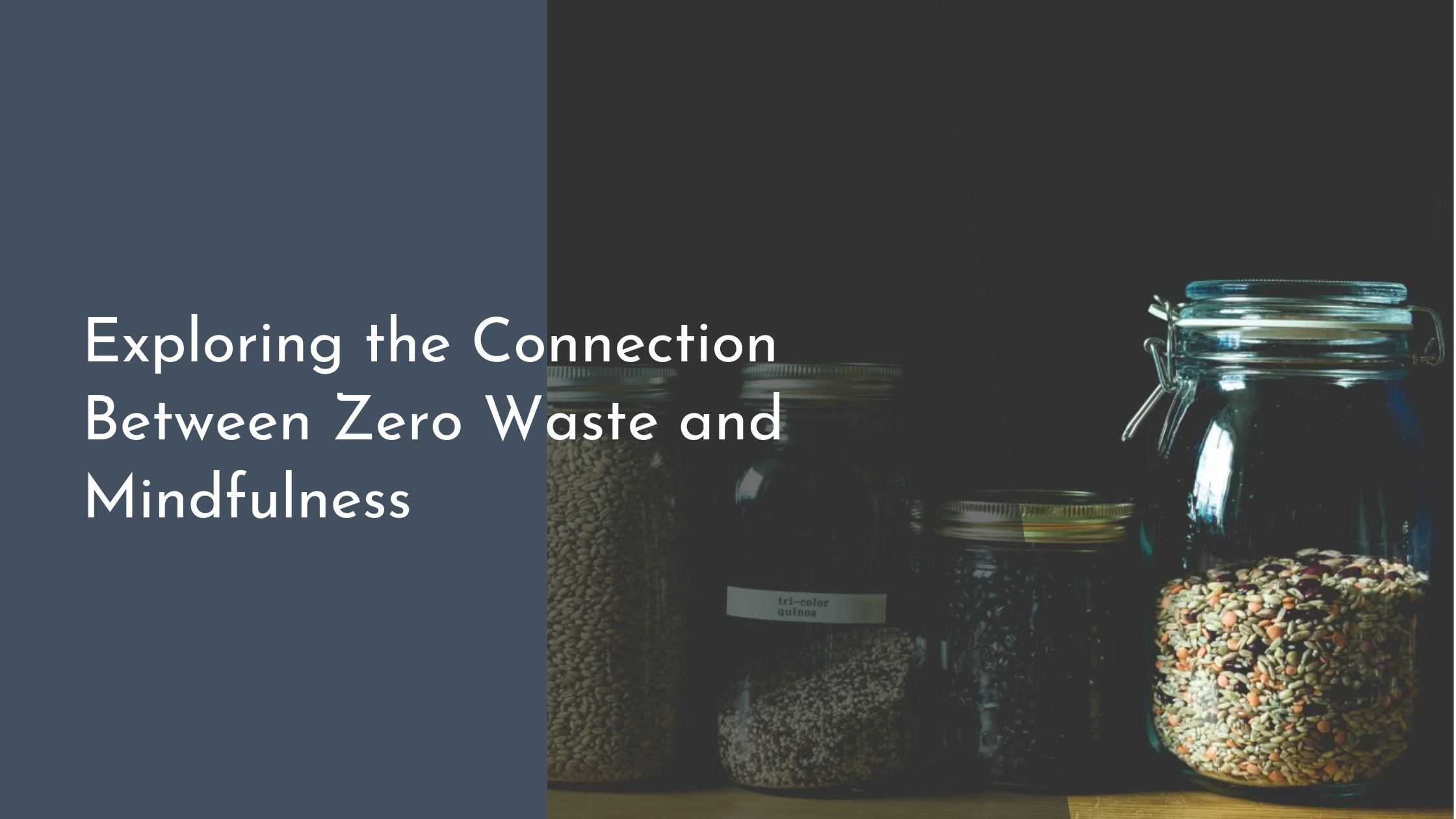Exploring the Connection Between Zero Waste and Mindfulness
In an era where environmental consciousness is on the rise, many individuals are seeking ways to align their daily habits with a more sustainable lifestyle. Two concepts that have emerged as powerful allies in this quest are zero waste and mindfulness. While they may seem distinct at first glance, these philosophies share a profound connection. By intertwining mindful living with zero waste practices, individuals not only reduce their environmental footprint but also cultivate a more intentional, fulfilling life. This article explores the intersection of these two transformative movements, highlighting how adopting a zero waste mindset can lead to enhanced mindfulness and a more sustainable way of living.
Understanding the Zero Waste Movement
The zero waste movement is a growing global initiative aimed at minimizing the amount of waste sent to landfills and incinerators. It encourages individuals, communities, and businesses to rethink their consumption patterns and adopt practices that prioritize waste reduction, reuse, and recycling. At its core, zero waste is about designing and managing products and processes to systematically avoid and eliminate waste and conserve resources. This approach not only addresses the environmental impact of waste but also promotes economic, environmental, and social benefits by fostering a circular economy where resources are continuously reused and reimagined.
Beyond the practical aspects of waste reduction, the zero waste movement is deeply rooted in a philosophy of sustainability and responsibility. It challenges the throwaway culture that dominates modern society and emphasizes the importance of making conscious choices that reflect a commitment to the health of our planet. By focusing on reducing waste at the source—through thoughtful consumption, increased efficiency, and innovative design—zero waste advocates strive to create a more harmonious relationship between humans and the environment, encouraging all of us to take responsibility for the waste we create.
The Principles of Mindful Living
Mindful living is a practice that involves being fully present and engaged in the moment, free from judgment and distraction. It encourages individuals to cultivate awareness of their thoughts, emotions, and surroundings, leading to greater self-awareness and emotional resilience. Mindfulness has roots in ancient meditation practices but has gained popularity in contemporary society as a means to reduce stress, improve focus, and enhance overall well-being. By fostering a deeper connection with oneself and the world, mindfulness promotes a more balanced and intentional way of living.
Central to mindful living is the principle of intentionality—making deliberate choices in every aspect of life. This includes being mindful of daily routines, interactions, and consumption habits. Practicing mindfulness encourages individuals to slow down and savor each moment, fostering an appreciation for the simple pleasures that often go unnoticed in the hustle and bustle of everyday life. Whether it’s through mindful eating, mindful breathing, or mindful consumption, this practice helps individuals lead a life that is rich in meaning and fulfillment, ultimately contributing to a more peaceful and sustainable existence.
How Zero Waste Promotes Mindfulness
Embracing a zero waste lifestyle inherently encourages mindfulness by requiring individuals to be more conscious of their consumption habits. When striving for zero waste, people must carefully consider the lifecycle of the products they use—from production to disposal—and make intentional choices that minimize environmental impact. This heightened awareness not only reduces waste but also fosters a deeper connection to the materials and resources that support our daily lives. By focusing on sustainable alternatives and engaging in practices like composting, recycling, and upcycling, individuals can cultivate a sense of responsibility and mindfulness that extends beyond the immediate act of consumption.
Furthermore, the zero waste movement promotes mindfulness through the practice of simplifying life and reducing clutter. By prioritizing quality over quantity, individuals learn to appreciate the value of their possessions and focus on what truly matters. This intentionality leads to a more mindful approach to both personal belongings and the environment, encouraging individuals to find contentment in simplicity and to cherish experiences over material goods. As people embrace zero waste principles, they often report a sense of liberation from consumer culture, finding joy in minimalism and a more meaningful connection to the natural world.
Embracing Both for a Sustainable Lifestyle
Adopting both zero waste and mindful living practices creates a powerful synergy that fosters a sustainable lifestyle. By integrating these principles, individuals can develop a holistic approach to sustainability that encompasses both environmental and personal well-being. This approach encourages a shift from a consumer-driven mindset to one of intentional living and conscious consumption. As individuals become more aware of their environmental impact, they can make informed decisions that align with their values, leading to a more sustainable and fulfilling lifestyle.
Living mindfully and waste-free also opens the door to a community of like-minded individuals who share similar values. Connecting with others who are on a similar journey provides support, inspiration, and opportunities for collaboration. Whether through community clean-ups, zero waste workshops, or mindfulness retreats, embracing both zero waste and mindful living creates a sense of purpose and belonging. Together, these practices empower individuals to make positive changes in their lives and in the world, fostering a culture of sustainability and mindfulness that has the potential to create lasting impact.
In conclusion, the connection between zero waste and mindfulness offers a unique opportunity to live a more intentional and environmentally conscious life. By embracing both practices, individuals can cultivate a deeper sense of awareness and responsibility, leading to a more sustainable and fulfilling lifestyle. As we navigate the challenges of modern living, integrating zero waste principles with mindful living allows us to reduce our environmental footprint while enhancing our overall well-being. Living mindfully and waste-free is not only a personal journey but also a powerful contribution to a healthier, more sustainable planet. So why not take the first step towards a more mindful, waste-free life today? The planet—and your peace of mind—will thank you for it.

